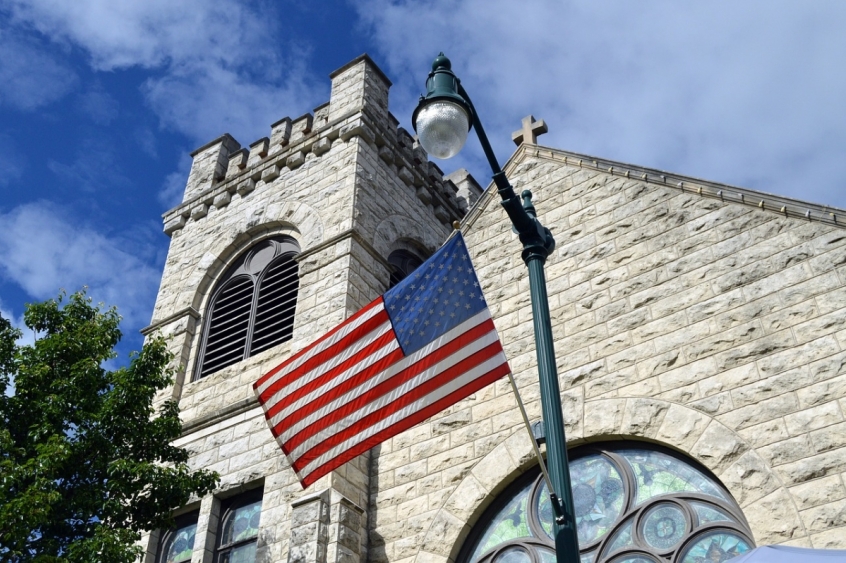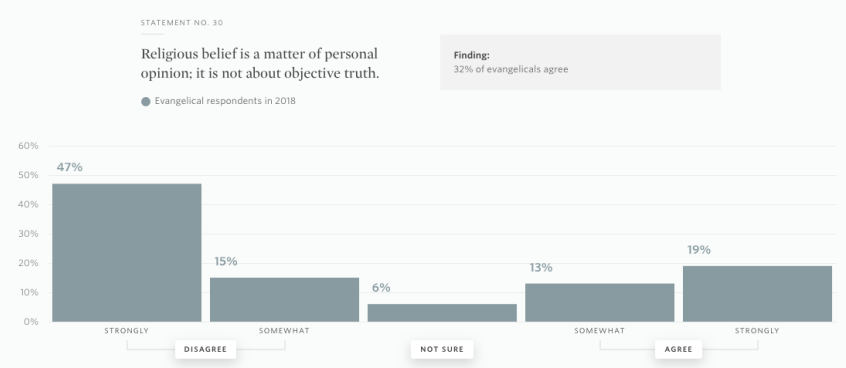A survey by LifeWay Research for Ligonier Ministries about what Americans really think about basic Christian beliefs has thrown up some uncomfortable results – particularly about the attitudes of evangelicals.
The 2018 State of American Theology study is the third in a series and covers categories including beliefs about God, with beliefs about goodness and sin, rewards and punishment, salvation and religious texts, the church and authority.

The survey found that almost seven in 10 Americans believe God is perfect, and two-thirds accept the resurrection of Jesus. More than half – 57 per cent – agree that 'Jesus is the only person who never sinned', with the same proportion saying that 'Jesus is the first and greatest being created by God'. Sixty-six per cent agree 'God accepts the worship of all religions, including Christianity, Judaism and Islam.'
When it comes to beliefs about goodness and sin, more than three-quarters doubt sin has eternal consequences and two-thirds think most people are good by nature.
On the Bible, half believe the Bible is '100 per cent accurate in all that it teaches', but 36 per cent say modern science disproves the Bible.
More than half – 54 per cent – believe hell is a real place where certain people will be punished forever, while 34 per cent agree that 'God will always reward true faith with material blessings in this life'.
More than half – 58 per cent – say that worshipping with one's family is a valid alternative to attending church, while 37 per cent say that 'Churches must provide entertaining worship services if they want to be effective.'
On questions of authority, six in 10 say that religious belief is a matter of opinion rather than of objective truth. A bare majority – 51 per cent – agree that sex outside traditional marriage is sin, with slightly more – 52 per cent – saying abortion is a sin. Thirty-eight per cent say gender identity is a matter of choice, while 44 per cent say that 'The Bible's condemnation of homosexual behavior doesn't apply today.'
However, in Ligonier's analysis of the data, it identifies aspects of specifically evangelical beliefs it regards as worrying. For instance, 52 per cent of evangelicals agree that 'everyone is good by nature'. 'This idea flatly contradicts the Bible, which teaches the radical corruption of every human being and declares that no one does good by nature (Rom. 3:10–12). This is why we need the gospel in the first place – because none of us is good.'
And Ligonier is also concerned that 51 per cent of evangelicals believe God accepts the worship of all religions: 'The Bible is clear that the gospel is the only way of salvation, and God will not accept the worship of other faiths,' it says.

Thirty-two per cent of evangelicals say their religious beliefs are not objectively true. Ligonier comments: 'If Christianity and its doctrines, such as the holiness of God and the resurrection of Christ, are merely matters of personal opinion, then we are truly lost.'
On the nature of Jesus, 78 per cent of evangelicals believe he is 'the first and greatest being created by God' – 'a view espoused by the ancient heretic Arius', as Ligonier points out, adding: 'These results show the pressing need for Christians to be taught Christology, especially as the outcome has gotten worse since 2016.'
It concludes: 'The 2018 State of Theology survey reveals deep confusion about the Bible's teaching, not only among Americans as a whole, but also among evangelicals... These results show the urgent need for sound biblical teaching and the bold preaching of the gospel. Millions of people do not understand the holiness of God, the reality of sin, and the one way of salvation in Jesus Christ. There is much work to be done, but it is our hope that these findings will serve the church in its efforts to reach more people with the faithful proclamation of the truth of God's Word.'













